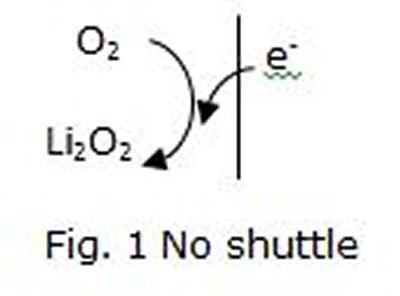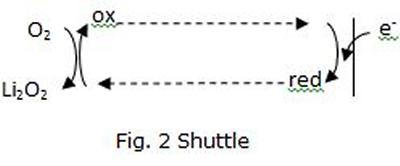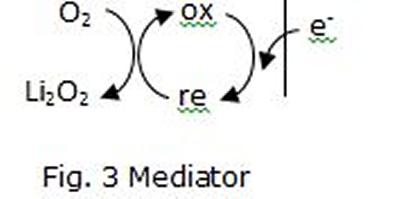John Owen (40 mins talk + 10 mins questions)
School of Chemistry, University of Southampton
Title: Redox Shuttles and Mediators to facilitate discharge of Nonaqueous Lithium – Air Batteries
Abstract: Electrochemical oxygen reduction in a non-aqueous electrolyte often results in the deposition of an insoluble product on the electrode surface, thereby blocking access of oxygen to the surface for continued reaction (Fig. 1). In the presence of a suitable redox shuttle such as viologen, oxygen reduction can occur homogeneously in solution near the air interface (Fig. 2). This has the effect of displacing the oxygen reduction reaction some distance away from the electrode surface, which remains active to regenerate the reduced form of the shuttle. A further possibility is mediation of the oxygen reduction reaction in order to favour the formation of lithium peroxide rather than radical products that may degrade the electrolyte (Fig. 3). Given a suitable shuttle reagent, this scheme may have several potential advantages, for example,
- Avoidance of electrode passivation by insoluble lithium oxides
- An increased, chemical driving force for oxygen adsorption into the electrolyte
- Increased mass transfer to the electrode surface
- Enhanced kinetics of lithium peroxide formation
- Minimisation of side reactions that may degrade the electrolyte



.
Biography: Prof. John Owen obtained his first degree in Chemistry from Imperial College, London, where he also studied for his Ph.D. in Organic Electro-optic Crystals under the late E.A.D. White. He then worked on Solar Energy at the Materials and Energy Research Centre in Iran until in 1979 revolution brought him back to the Wolfson Centre for Solid State Ionics in Imperial College as Wolfson Fellow working on polymer electrolytes. In 1984 he was appointed lecturer in the Department of Chemistry and Applied Chemistry at the University of Salford before joining the School of Chemistry at Southampton in 1990 where he is now a Professor of Electrochemistry and leader of the Solid State Electrochemistry Group which researches into electrode and polymer electrolyte materials for batteries, supercapacitors, fuel cells and electrochromic devices. Prof. Owen is a Fellow of the Royal Society of Chemistry and a member of the Editorial Board of the Journal of Power Sources.